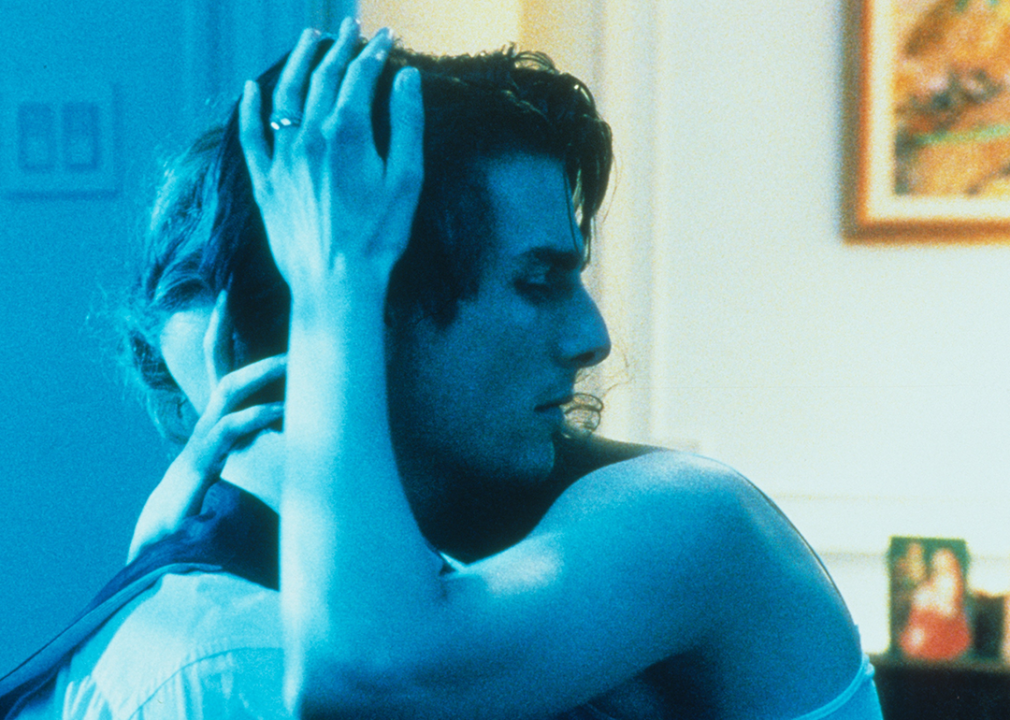20 panned movies that went on to become cult classics
Published 2:30 pm Wednesday, April 3, 2024
20 panned movies that went on to become cult classics
It’s hard to know exactly what trajectory a film will take in terms of how audiences will receive it when it’s completed and ready to be distributed to theaters. Many films in postproduction will endure test screenings, sure, but that’s still often not an accurate measure of how well a film will actually perform, or who will resonate with it.
Some films like “Barbie” or “Oppenheimer,” for instance, are an immediate hit, while others need a little longer to marinate in the proverbial oven. Such is the case with films like “Wet Hot American Summer” and “Starship Troopers,” two very different films whose satires were somewhat lost on the audiences of the times they debuted. But that doesn’t mean their story is over.
These days, the term “cult classic” tends to get thrown around willy-nilly, or people try to anticipate years in advance whether a recent release will one day receive such a label. But the term serves a very specific function, designating a film that gains a slow-burning fandom as the years drag on after its initial release, thus receiving reevaluation—or simply more fervent enthusiasm—from critics or fans.
Oftentimes, such films go on to become true icons of pop culture, like in the cases of “The Big Lebowski,” “American Psycho,” and “The Room.” As the latter film proves, a cult classic doesn’t necessarily have to be a good movie; it just needs to find an audience.
For this list, Stacker combed through film history’s greatest Cinderella stories to highlight 20 of the most timeless cult classics. To qualify for the list, each film had to receive mixed-to-negative reviews at the time of its release before eventually rising to beloved cult classic status, netting at least a 6.5 rating on IMDb. Read on to see if some of your favorite underdog stories made our list.
![]()
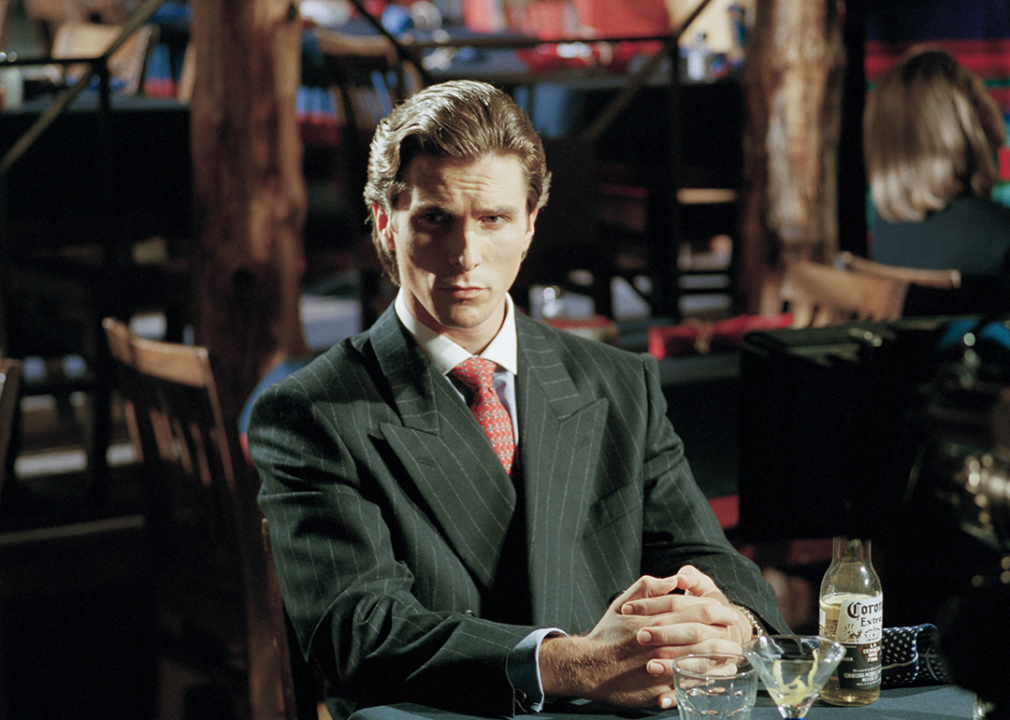
Eric Robert/Sygma/Sygma via Getty Images
American Psycho (2000)
– Director: Mary Harron
– IMDb user rating: 7.6
– Run time: 102 minutes
Director Mary Harron’s film adaptation of the Bret Easton Ellis novel of the same name—starring Christian Bale as a bloodthirsty Wall Street yuppie—was polarizing to both critics and audiences when it first premiered at the Sundance Film Festival in 2000. However, it was a box office success, making over $34 million on a mere $7 million budget, and it did receive positive reviews from critics such as Roger Ebert. But in the years following the DVD release, the film has grown even stronger in its fandom and has become somewhat of a staple of modern pop culture, infamous for the way some people are unable to discern its use of satire.
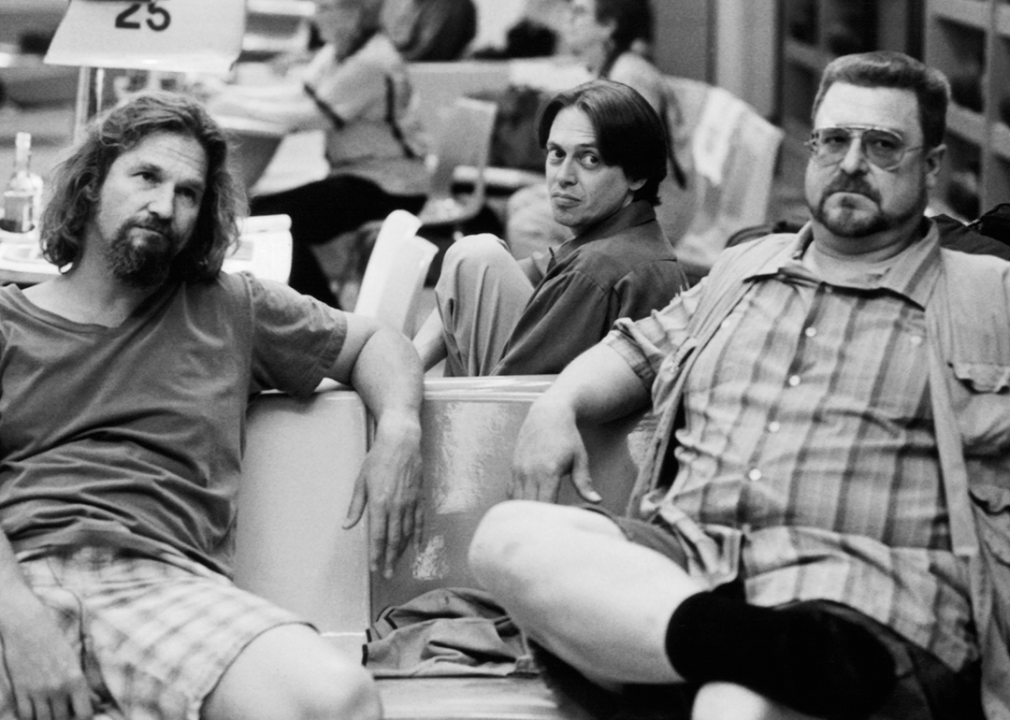
Michael Ochs Archives // Getty Images
The Big Lebowski (1998)
– Directors: Joel Coen, Ethan Coen
– IMDb user rating: 8.1
– Run time: 117 minutes
“The Dude abides” is perhaps one of the most famous quotes in all of cinema history, uttered by Jeff Bridges’ unforgettable performance as ultra-slacker “The Dude.” The film follows Lebowski and his friends as he’s embroiled in a hilarious case of mistaken identity. A modest success on a $15 million budget, “The Big Lebowski” garnered mixed reviews upon release that have only gained positive momentum ever since, with a fan following so passionate that they have their own name.
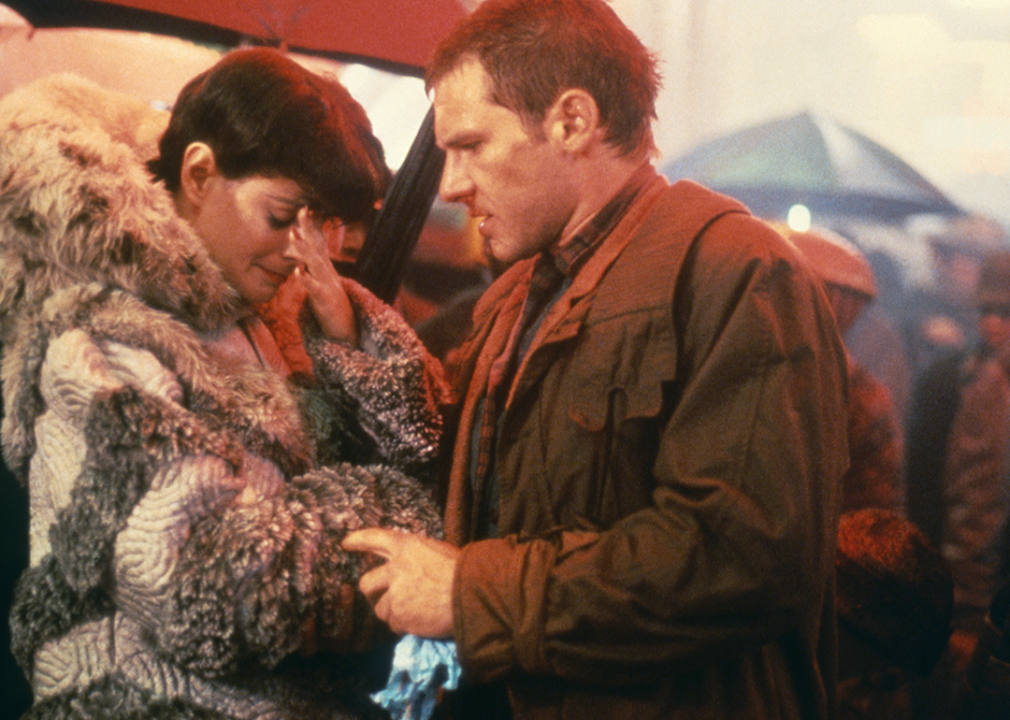
Sunset Boulevard/Corbis via Getty Images
Blade Runner (1982)
– Director: Ridley Scott
– IMDb user rating: 8.1
– Run time: 117 minutes
Loosely based on a novel by Philip K. Dick, “Blade Runner” follows cop Rick Deckard (Harrison Ford) as he hunts down a contingent of rogue synthetic humans—aka replicants. The film underperformed upon release in 1982, with critics faulting the lack of action and slower pacing; Chris Hicks of Deseret News called it a “far too long thriller with many dull moments” in a review published a decade after the film was released. Yet the film has so grown in cultural influence and popularity that it is often cited as a seminal work in film theory.
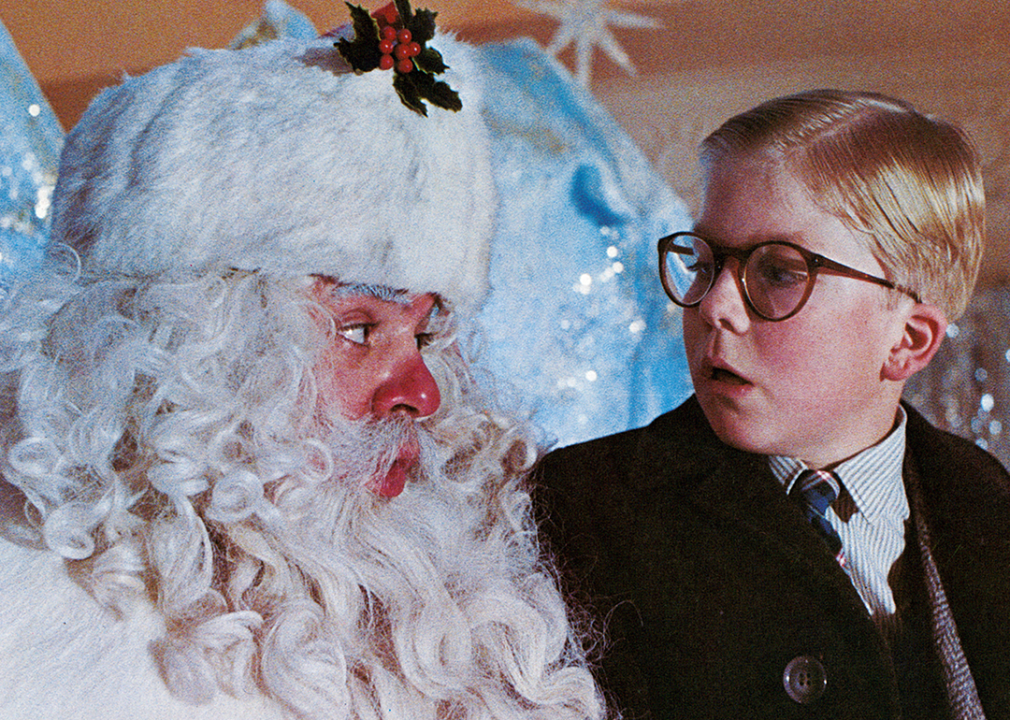
Metro-Goldwyn-Mayer // Getty Images
A Christmas Story (1983)
– Director: Bob Clark
– IMDb user rating: 7.9
– Run time: 93 minutes
The beloved holiday classic “A Christmas Story” was never actually a negatively reviewed film; in fact, upon release, it received positive reviews from critics and was a modest success at the box office. But at the time, it was considered something of an overlooked “sleeper” film, and Roger Ebert posited that the film did not perform quite how it should have at first because “people don’t often go to movies with specific holiday themes.” That has all changed in the 40 years since the film hit theaters, partly helped by yearly 24-hour-long “Christmas Story” marathons on both TBS and TNT dating back to 1997.
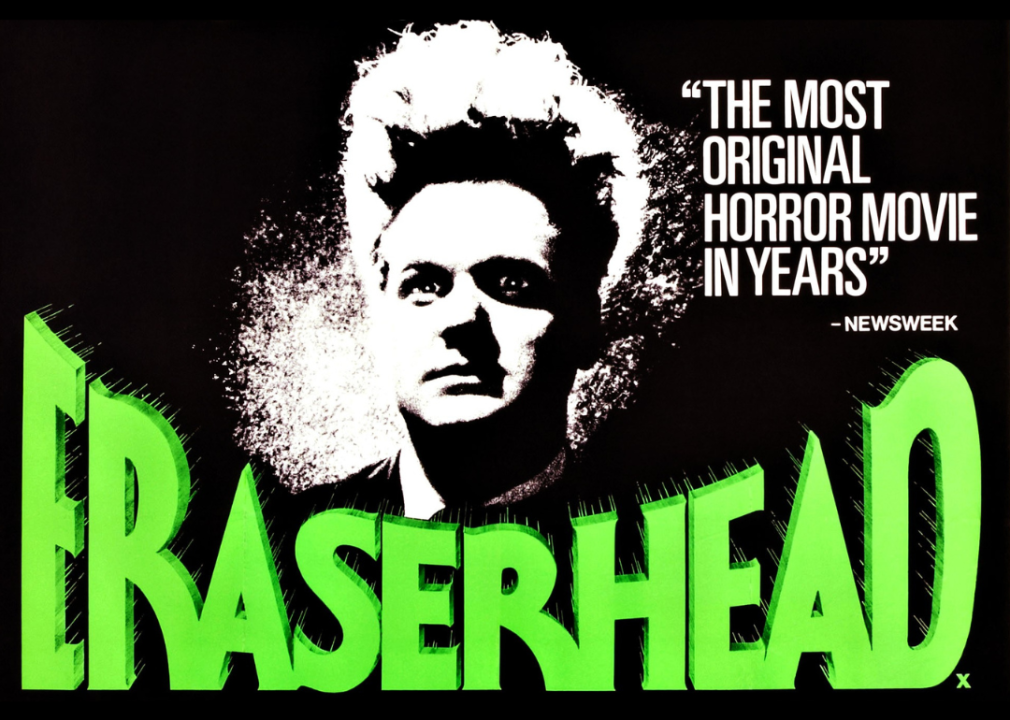
LMPC via Getty Images
Eraserhead (1977)
– Director: David Lynch
– IMDb user rating: 7.3
– Run time: 89 minutes
David Lynch’s feature debut continues to delight and confound viewers after nearly 50 years, but upon its extremely small premiere, it could be considered kind to say it was divisive. The experimental art film about a hapless man left to care for his deformed child inspired initial negative reactions from publications like Variety, which called it a “sickening bad-taste exercise.” However, it became a popular midnight screening at various theaters during the 1970s and ’80s and ultimately ended up a box office success; from there, it became canonical as a classic of cinema and a particularly iconic cult film. It was inducted into the National Film Registry in 2004.
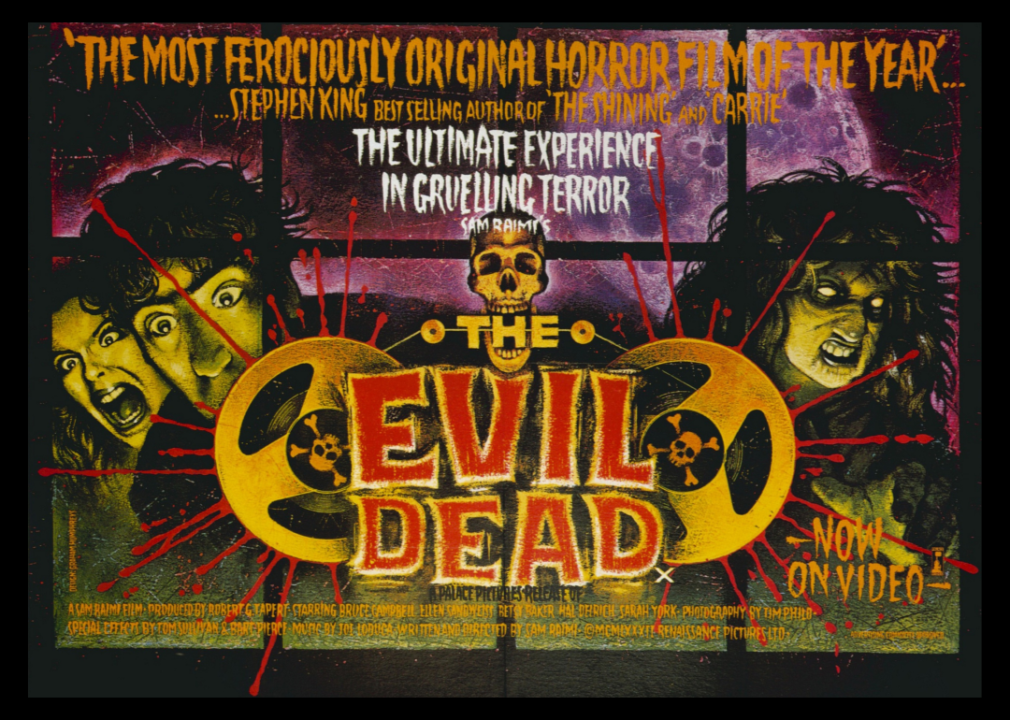
Universal History Archive/UIG via Getty images
The Evil Dead (1981)
– Director: Sam Raimi
– IMDb user rating: 7.4
– Run time: 85 minutes
Although the first film in the popular horror series didn’t do so hot upon domestic release, it did do well internationally and ultimately earned back its meager $375,000 budget. Critical response to the uber-low budget film—about a group of teens who accidentally unleash demonic forces contained within a cabin in the woods—was also generally positive, but “The Evil Dead” went on to earn itself an incredibly zealous following after the fact. Not just one of the most successful cult films of all time, “The Evil Dead” spawned an entire media franchise including multiple sequels, a spinoff, a remake, a TV series, video games, and comic books.
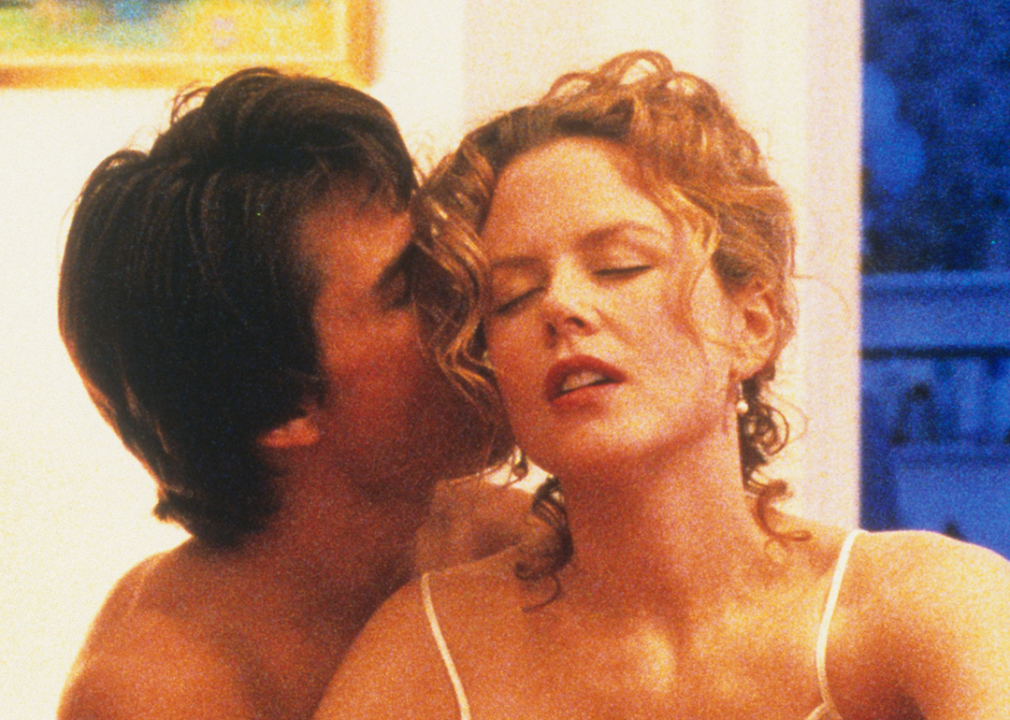
Warner Brothers // Getty Images
Eyes Wide Shut (1999)
– Director: Stanley Kubrick
– IMDb user rating: 7.5
– Run time: 159 minutes
Directing icon Stanley Kubrick’s final film—which was completed after his death from a heart attack during production—was actually his highest-grossing ever, and it received many positive reviews from critics like Janet Maslin of The New York Times and Nathan Rabin of The A.V. Club. However, there were many mixed or unfavorable reviews, and director Martin Scorsese believed that the film was initially misunderstood by many, as well as some still feeling uncertainty over Kubrick’s lack of hand in the film’s completion. It is now often considered by some to be one of Kubrick’s very best.

Universal // Getty Images
Fear and Loathing in Las Vegas (1998)
– Director: Terry Gilliam
– IMDb user rating: 7.5
– Run time: 118 minutes
Based on Hunter S. Thompson’s novel of the same name, Terry Gilliam’s adaptation chronicles two men’s substance-laden journey through Las Vegas and stars Johnny Depp and Benicio Del Toro. Upon release in 1998, the film was a box office flop and polarized critics—The New York Times wrote that it “convey[ed] so little visceral energy that when it’s over you may feel like shrugging your shoulders.” Nevertheless, the film saw reappraisal as the years went on and it gained cult status: writing for The A.V. Club in 2011, Scott Tobias said that it was “one of the most subversive studio films of the ’90s.”
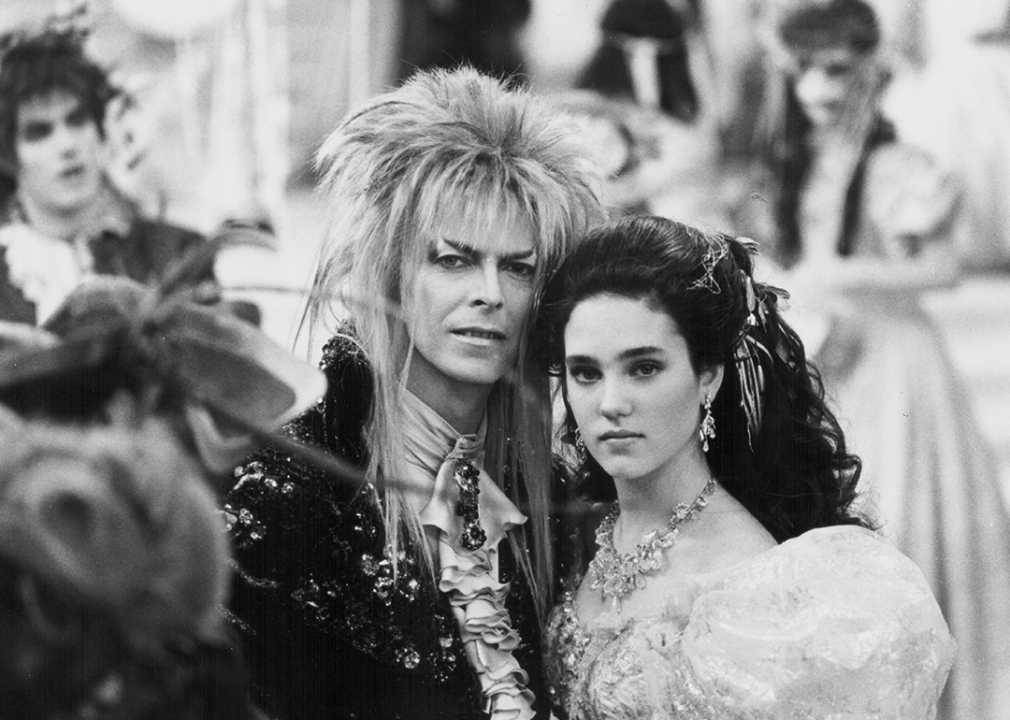
Stanley Bielecki Movie Collection // Getty Images
Labyrinth (1986)
– Director: Jim Henson
– IMDb user rating: 7.3
– Run time: 101 minutes
This musical fantasy film starring David Bowie and featuring puppetry from Jim Henson performed poorly at the domestic box office when it hit theaters almost 40 years ago, although it did very well in the United Kingdom. It didn’t do quite so well with critics, however: Gene Siskel wrote a particularly scathing review, decrying the film as “pathetic” and “visually ugly.” Ultimately, home video release turned this dud into a diamond, and “Labyrinth” has endured as a cult classic—what’s more, Jim Henson was aware that his film had come to be appreciated just before his death in 1990.
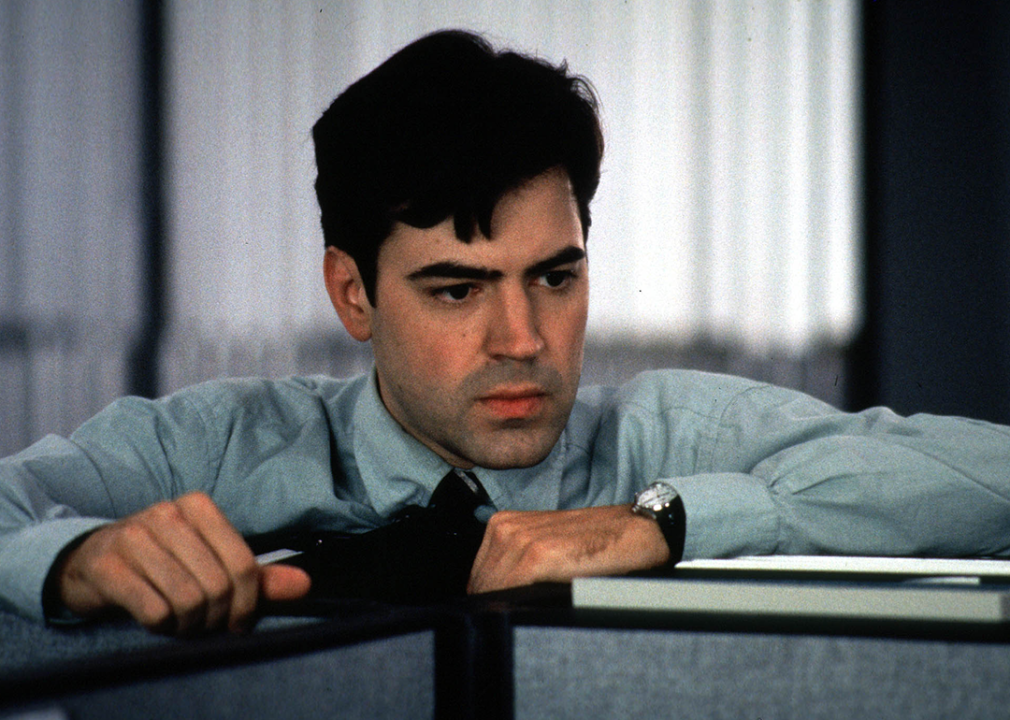
Twentieth Century Fox // Getty Images
Office Space (1999)
– Director: Mike Judge
– IMDb user rating: 7.6
– Run time: 89 minutes
A satire of the soul-sucked office culture of the 1990s, “Office Space” is now a film one’s mind might automatically turn to upon hearing the phrase “cult classic.” But the now-beloved comedy had a shaky start, taking in only $12.2 million compared to its $10 million budget while garnering a mix of positive and middling reviews. In the end, syndicated reruns on Comedy Central starting in 2001, as well as robust home media sales, made “Office Space” into the pop culture icon that it still remains.
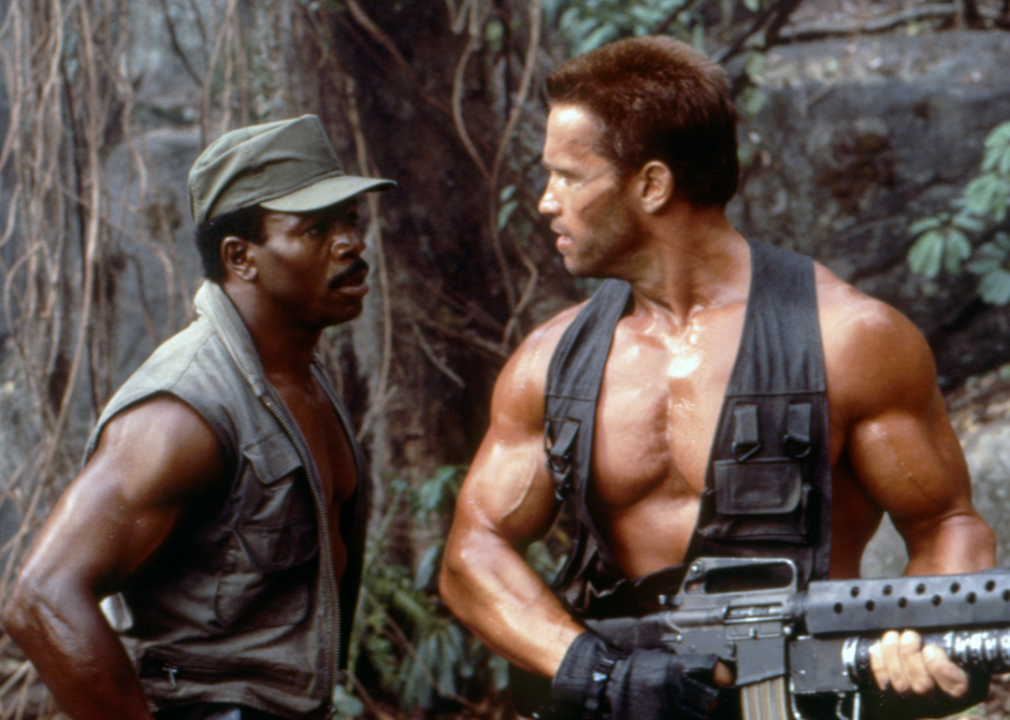
Sunset Boulevard // Corbis via Getty Images
Predator (1987)
– Director: John McTiernan
– IMDb user rating: 7.8
– Run time: 107 minutes
A reconnaissance team sent to the Guatemalan jungles meets their match with a ruthless alien creature who is intent on hunting them down one by one in this classic action-science fiction hybrid. Opening to mixed reviews from critics but a solid box office intake, “Predator” has since gone on to receive generous critical reevaluation and is now considered a staple of action and sci-fi. It is now a part of a massive media franchise that includes multiple directly related films and a duo of crossover films with the “Alien” franchise.
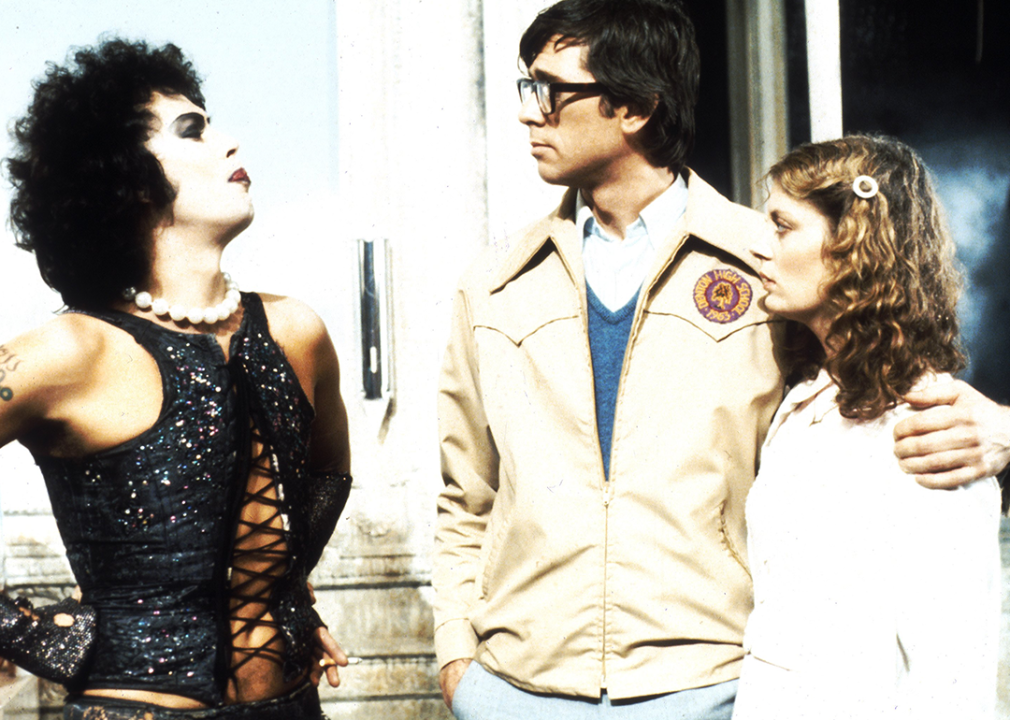
Michael Ochs Archives // Getty Images
The Rocky Horror Picture Show (1975)
– Director: Jim Sharman
– IMDb user rating: 7.4
– Run time: 100 minutes
When a newly married couple’s car breaks down in the middle of nowhere on a dark, stormy night, they turn to the only beacon of hope: a nearby castle, where a party is being held by a mad scientist who ensnares the innocent couple in his plans. The deeply weird, low-budget “Rocky Horror Picture Show” was met with extreme negativity from critics and was actually pulled from theaters due to low turnout. Well, midnight screenings saved the film from obscurity, and it’s now one of the longest-running theatrical runs in history due to its numerous rereleases, many of which include passionate audience participation.
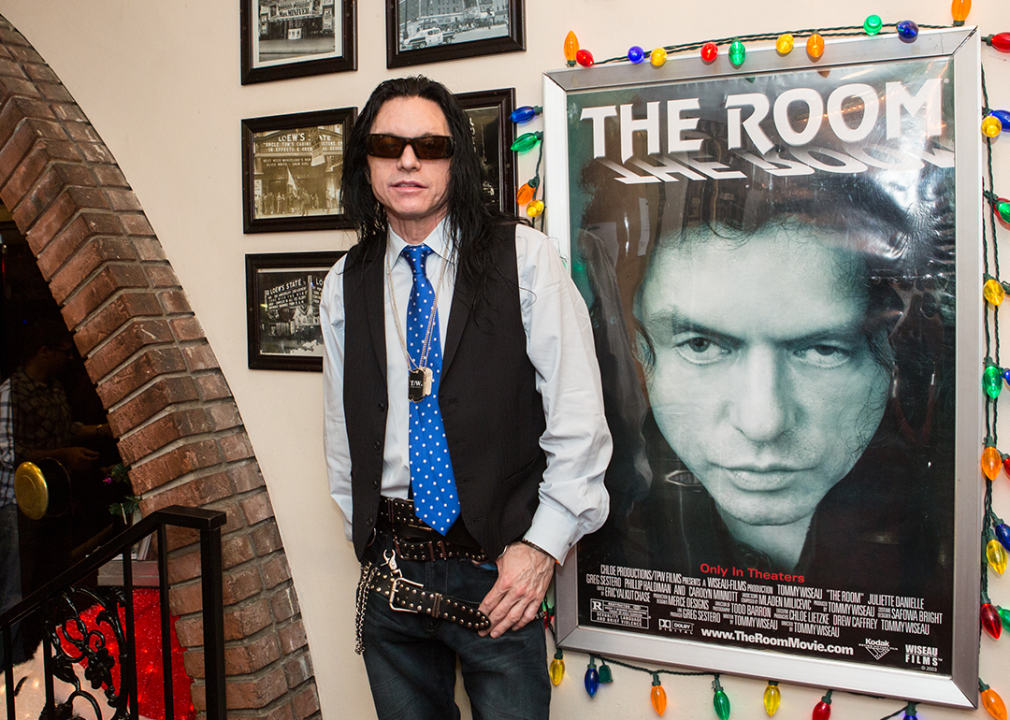
Josh Brasted // Getty Images
The Room (2003)
– Director: Tommy Wiseau
– IMDb user rating: 3.6
– Run time: 99 minutes
It might seem strange that a film that is often cited as one of the worst ever made could engender such an ardent fanbase, but Tommy Wiseau’s “The Room” is just that. The brainchild of a profoundly eccentric man created one of the weirdest movie experiences of all time, and in doing so it quickly brought with it a cult following that has endured over two decades. “The Room,” which has a number of A-lister celebrity fans, now enjoys frequent appearances on the midnight screening circuit where audiences partake in a tradition of throwing spoons at the screen.
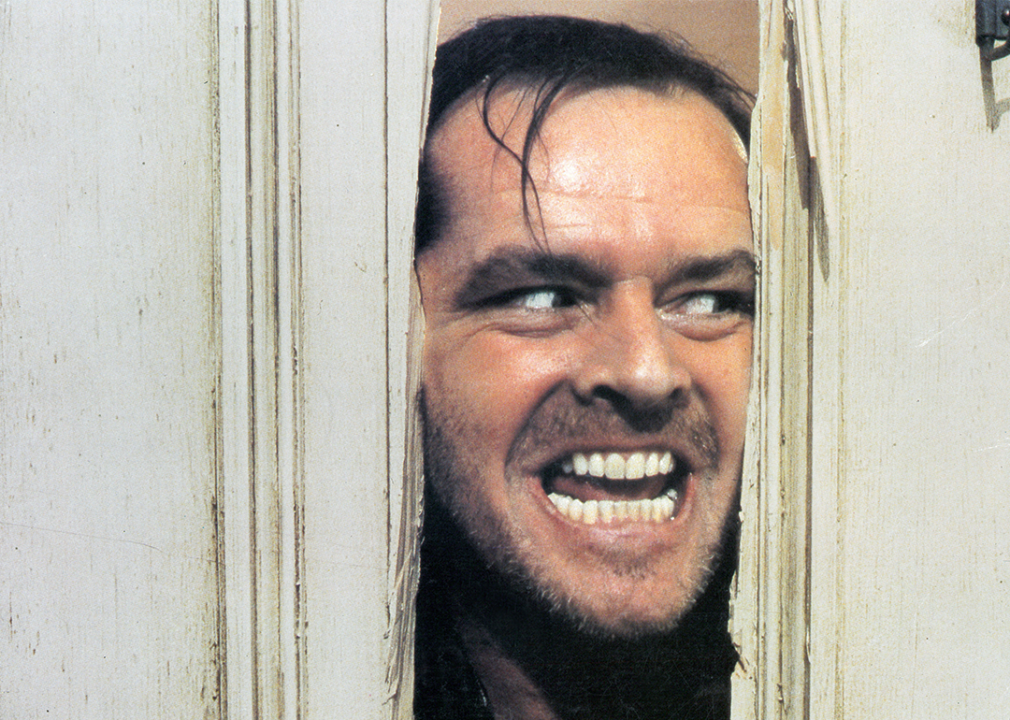
Warner Brothers // Getty Images
The Shining (1980)
– Director: Stanley Kubrick
– IMDb user rating: 8.4
– Run time: 146 minutes
During his stay taking care of the Overlook Hotel, father Jack Torrance slowly loses his mind to the whims of the haunted establishment. One of Stanley Kubrick’s most celebrated films, and one of the most iconic horror films of all time, “The Shining” debuted to mixed reactions from critics—specifically, the author of the source novel Stephen King notoriously hated Kubrick’s vision for his story.
The film even received two (controversial) Razzie nominations for Worst Director for Kubrick and Worst Actress for Shelley Duvall (the latter of which went on to be voided); however, with later critical reappraisal, the rest is history, and “The Shining” now enjoys its status as an icon of pop culture.
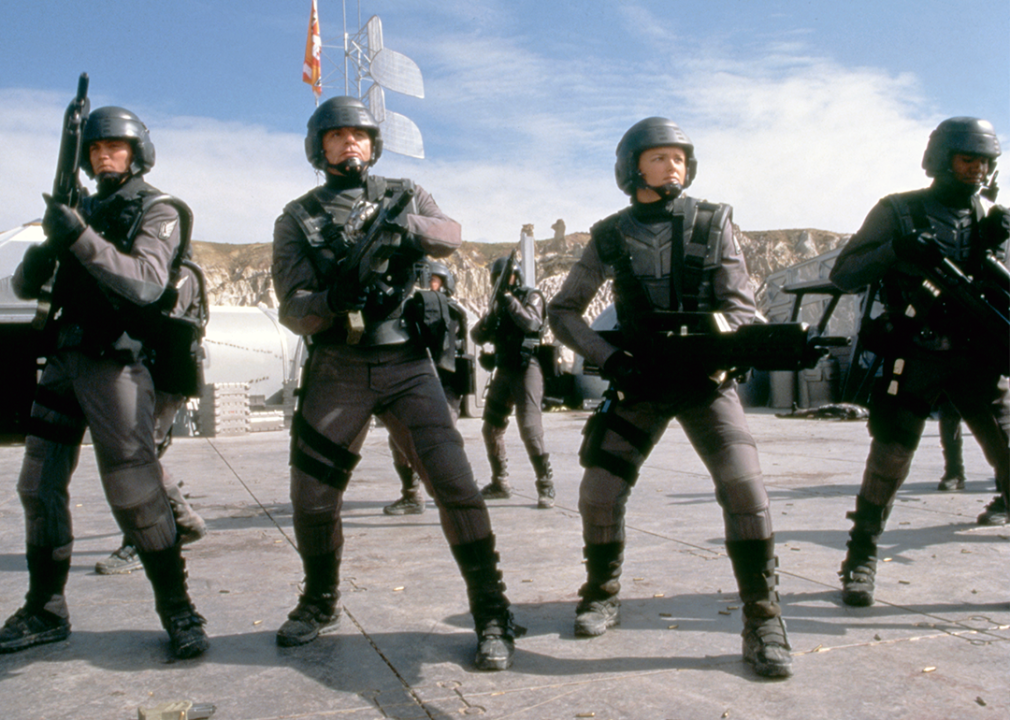
TriStar Pictures/Sunset Boulevard/Corbis via Getty Images
Starship Troopers (1997)
– Director: Paul Verhoeven
– IMDb user rating: 7.3
– Run time: 129 minutes
When it was released back in 1997, Paul Verhoeven’s sci-fi satire was met with swift critical backlash for its perceived endorsement of fascism, among other criticisms of the film, and initial box office success declined quickly. But in the years following that negative release, “Starship Troopers” has finally been understood for the satire that it is, and critical reevaluations of the film abound—such as from The Atlantic, which wrote that the film “critiques the military-industrial complex, the jingoism of American foreign policy, and a culture that privileges reactionary violence over sensitivity and reason.” Many actors and directors consider “Starship Troopers” one of the best films of the ’90s.
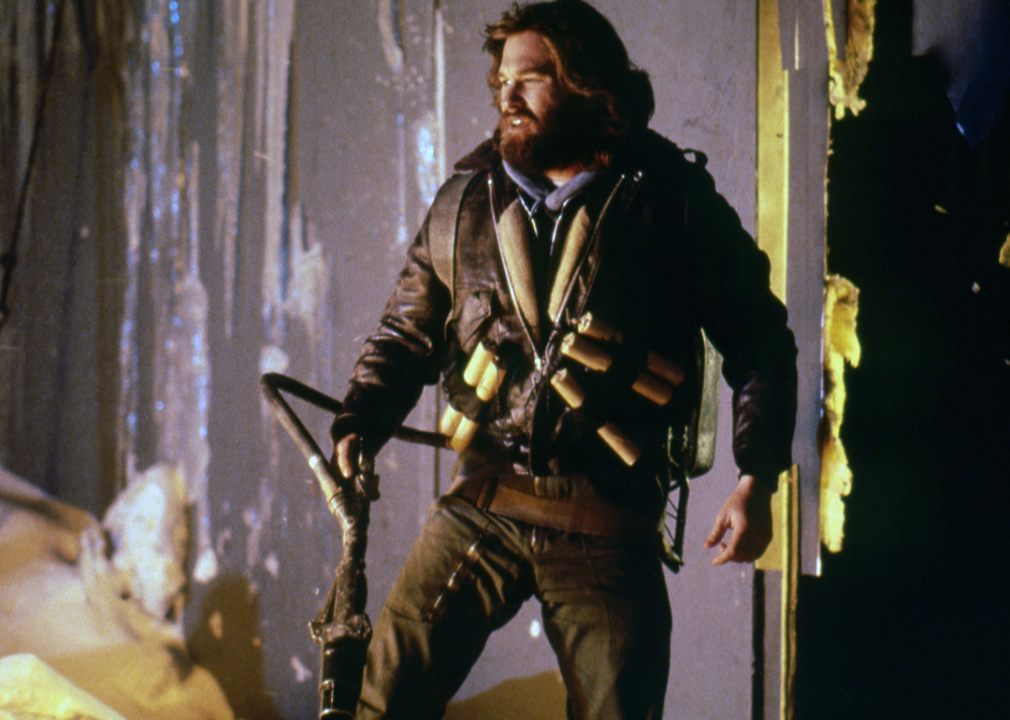
Sunset Boulevard/Corbis via Getty Images
The Thing (1982)
– Director: John Carpenter
– IMDb user rating: 8.2
– Run time: 109 minutes
It’s hard to imagine that a horror classic such as “The Thing” was considered “instant junk” upon release in 1982, but its theatrical debut was met with immediate backlash, and it didn’t perform too well with crowds, either. The film adaptation of the 1938 novella “Who Goes There?” faced stiff competition against the optimistic, family-friendly “E.T. the Extra-Terrestrial,” but once it received home video release it began to grow its cult following and eventually received reappraisal. It is frequently cited as one of the best sci-fi horror films of all time and has inspired a variety of spinoff merchandise, including a prequel film in 2011.
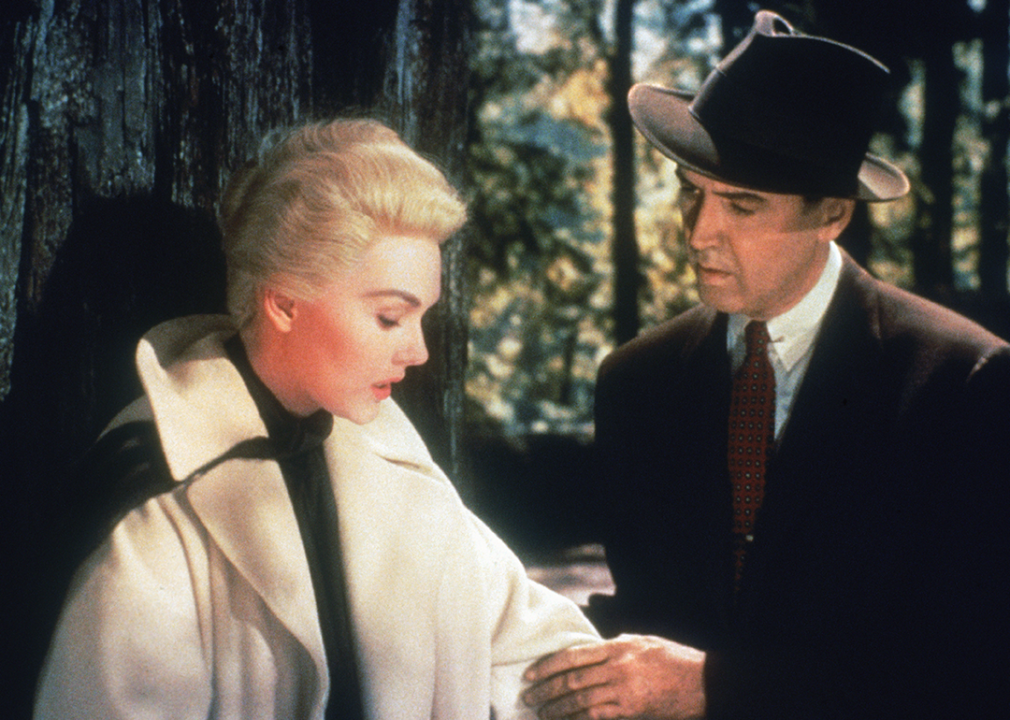
Archive Photos // Getty Images
Vertigo (1958)
– Director: Alfred Hitchcock
– IMDb user rating: 8.3
– Run time: 128 minutes
Even the master of suspense himself had a flop every now and then, including “Vertigo,” a film that previously topped the Sight and Sound “Greatest Films of All Time” list until 2022. Receiving very lukewarm reviews from critics and being compared uncharitably to past Hitchcock films, it rose in critics’ esteem as the years went on, and began showing up in the Sight and Sound “Greatest Films of All Time” top 10 list starting in 1982. By 1989, it became one of the first 25 films to be chosen for preservation in the National Film Registry.
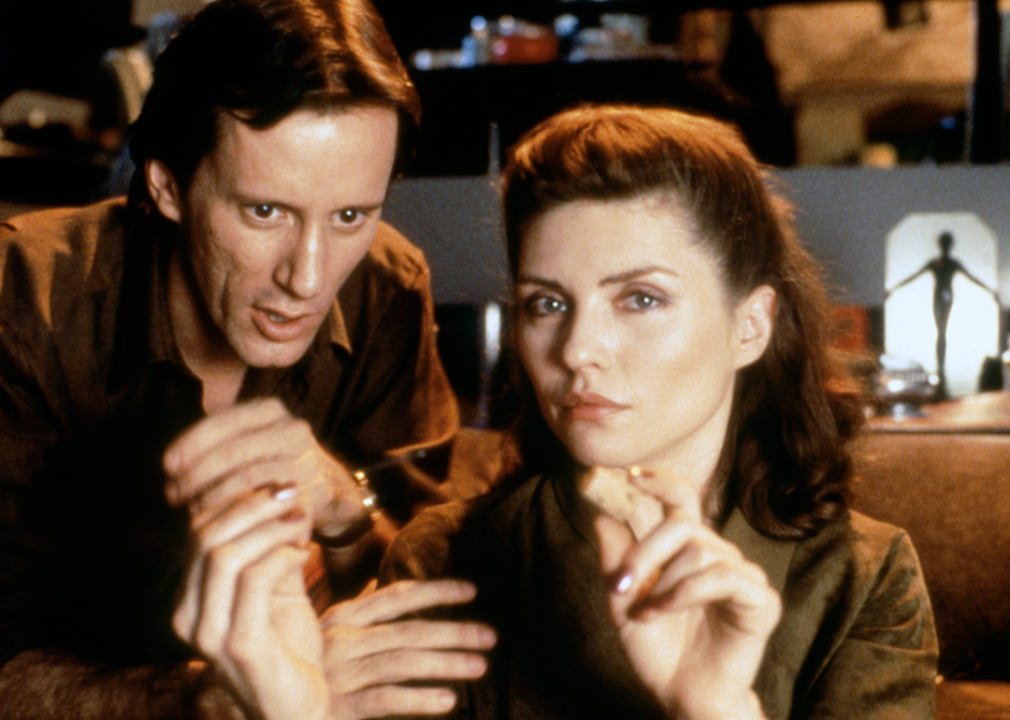
A Planfilm International II/Sunset Boulevard/Corbis via Getty Images
Videodrome (1983)
– Director: David Cronenberg
– IMDb user rating: 7.2
– Run time: 87 minutes
The body horror auteur has never been a stranger to controversy due to his films, and perhaps it’s ironic that David Cronenberg’s “Videodrome” was the director’s first film to receive studio backing and his highest budget ever at the time, only to turn out a complete box office bomb. Although some critics at the time managed to be on the film’s wavelength, audiences were a little slower in coming to appreciate the film about the CEO of a television station who attempts to uncover the source of a broadcast signal that airs snuff films. It’s now considered one of the director’s best and a crucial film in the body horror genre.
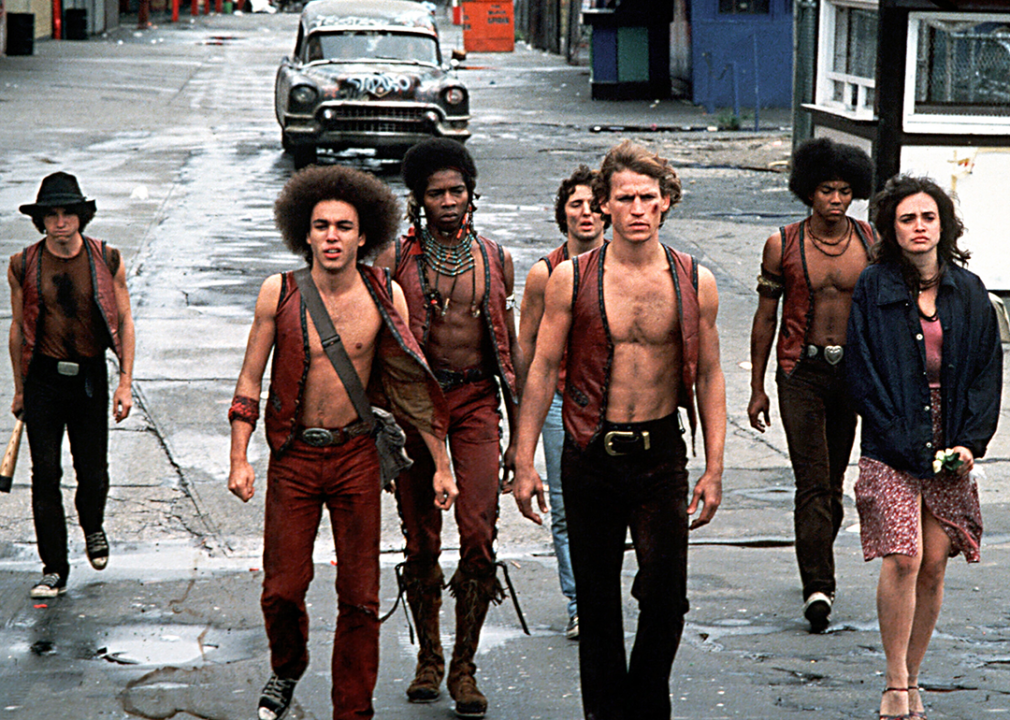
Silver Screen Collection // Getty Images
The Warriors (1979)
– Director: Walter Hill
– IMDb user rating: 7.5
– Run time: 93 minutes
Walter Hill’s action thriller—about a fictional New York street gang’s journey home from the Bronx to Coney Island, all while they’re framed for murder—was linked to a number of acts of violence towards moviegoers leaving the film, which Hill speculated was due to gangs coming to see the film and being confronted with rival gangs also there to see the film. In any event, the film turned in a gangbusters performance at the box office, though critics weren’t quite as impressed; in the decades since its release, “The Warriors” has been reevaluated (it currently sits at 88% approval from both critics and audiences on Rotten Tomatoes) and is now considered one of the best cult films of all time.
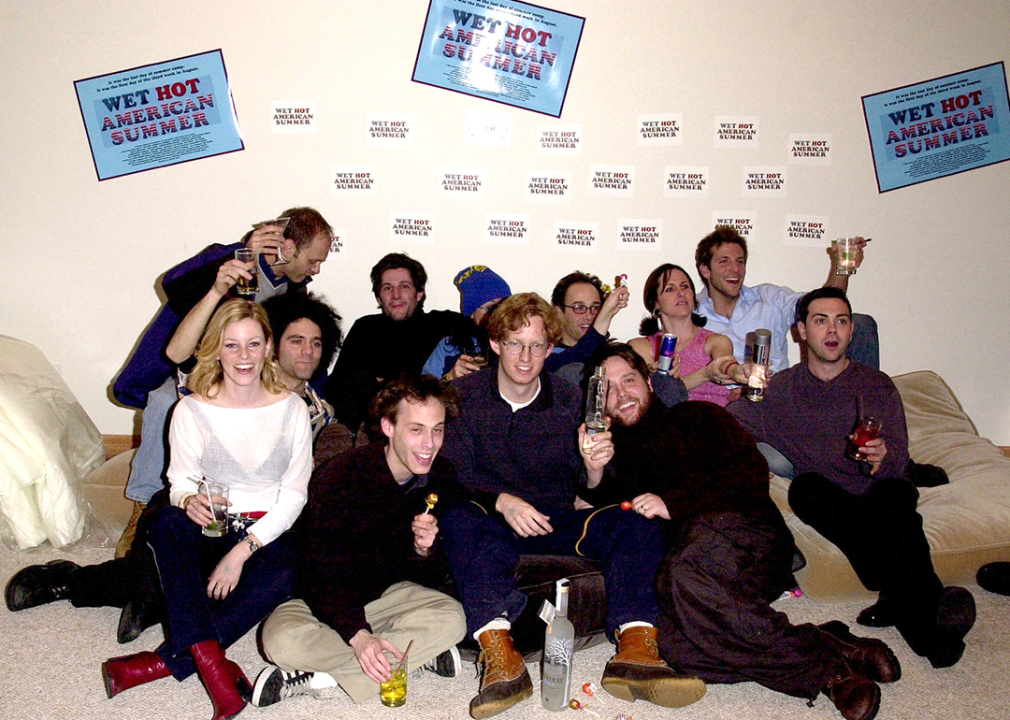
Doug Piburn/WireImage // Getty Images
Wet Hot American Summer (2001)
– Director: David Wain
– IMDb user rating: 6.5
– Run time: 97 minutes
A satire of ’80s teen sex comedies, the low-budget “Wet Hot American Summer” didn’t even gross $1 million at the box office, and critics were not kind to it either; the film still holds a 38% on Rotten Tomatoes, with early reviews dubbing it “sloppy” with “severely unfunny dialogue.” However, the film’s cult following stemmed from the appreciation of comedy A-listers that ended up boosting the careers of a number of the film’s key players, like Paul Rudd. It became enough of a hit among comedians and fans alike that it spawned two Netflix spinoff series, which were positively received by critics and audiences.
Data reporting by Luke Hicks. Story editing by Cynthia Rebolledo. Copy editing by Tim Bruns.


